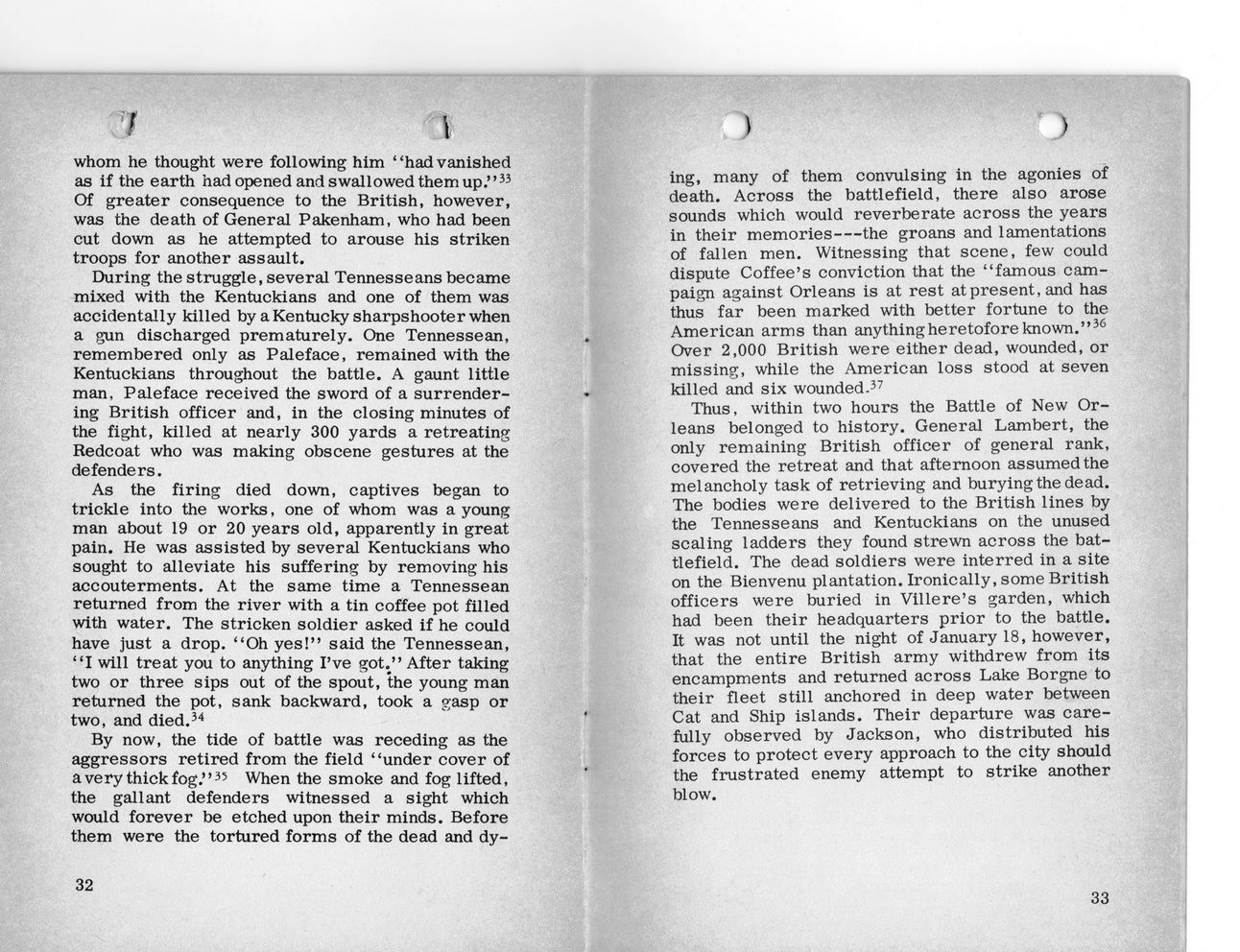This text was obtained via automated optical character recognition.
It has not been edited and may therefore contain several errors.
I whom he thought were following him ?had vanished as if the earth had opened and swallowed them up.? 33 Of greater consequence to the British, however, was the death of General Pakenham, who had been cut down as he attempted to arouse his striken troops for another assault. During the struggle, several Tennesseans became mixed with the Kentuckians and one of them was accidentally killed by a Kentucky sharpshooter when a gun discharged prematurely. One Tennessean, remembered only as Paleface, remained with the Kentuckians throughout the battle. A gaunt little man, Paleface received the sword of a surrendering British officer and, in the closing minutes of the fight, killed at nearly 300 yards a retreating Redcoat who was making obscene gestures at the defenders. As the firing died down, captives began to trickle into the works, one of whom was a young man about 19 or 20 years old, apparently in great pain. He was assisted by several Kentuckians who sought to alleviate his suffering by removing his accouterments. At the same time a Tennessean returned from the river with a tin coffee pot filled with water. The stricken soldier asked if he could have just a drop. ?Oh yes!? said the Tennessean, ?I will treat you to anything I?ve got.? After taking two or three sips out of the spout, the young man returned the pot, sank backward, took a gasp or two, and died.34 By now, the tide of battle was receding as the aggressors retired from the field ?under cover of a very thick fog.? 35 When the smoke and fog lifted, the gallant defenders witnessed a sight which would forever be etched upon their minds. Before them were the tortured forms of the dead and dy- 32 ) ing, many of them convulsing in the agonies of death. Across the battlefield, there also arose sounds which would reverberate across the years in their memories-------the groans and lamentations of fallen men. Witnessing that scene, few could dispute Coffee?s conviction that the ?famous campaign against Orleans is at rest at present, and has thus far been marked with better fortune to the American arms than anything heretofore known.?36 Over 2,000 British were either dead, wounded, or missing, while the American loss stood at seven killed and six wounded-37 Thus, within two hours the Battle of New Orleans belonged to history. General Lambert, the only remaining British officer of general rank, covered the retreat and that afternoon assumed the melancholy task of retrieving and burying the dead. The bodies were delivered to the British lines by the Tennesseans and Kentuckians on the unused scaling ladders they found strewn across the battlefield. The dead soldiers were interred in a site on the Bienvenu plantation. Ironically, some British officers were buried in Villere?s garden, which had been their headquarters prior to the battle. It was not until the night of January 18, however, that the entire British army withdrew from its encampments and returned across Lake Borgne to their fleet still anchored in deep water between Cat and Ship islands. Their departure was carefully observed by Jackson, who distributed his forces to protect every approach to the city should the frustrated enemy attempt to strike another blow. 33

Battle of 1814 33